ODEI Programme in Action
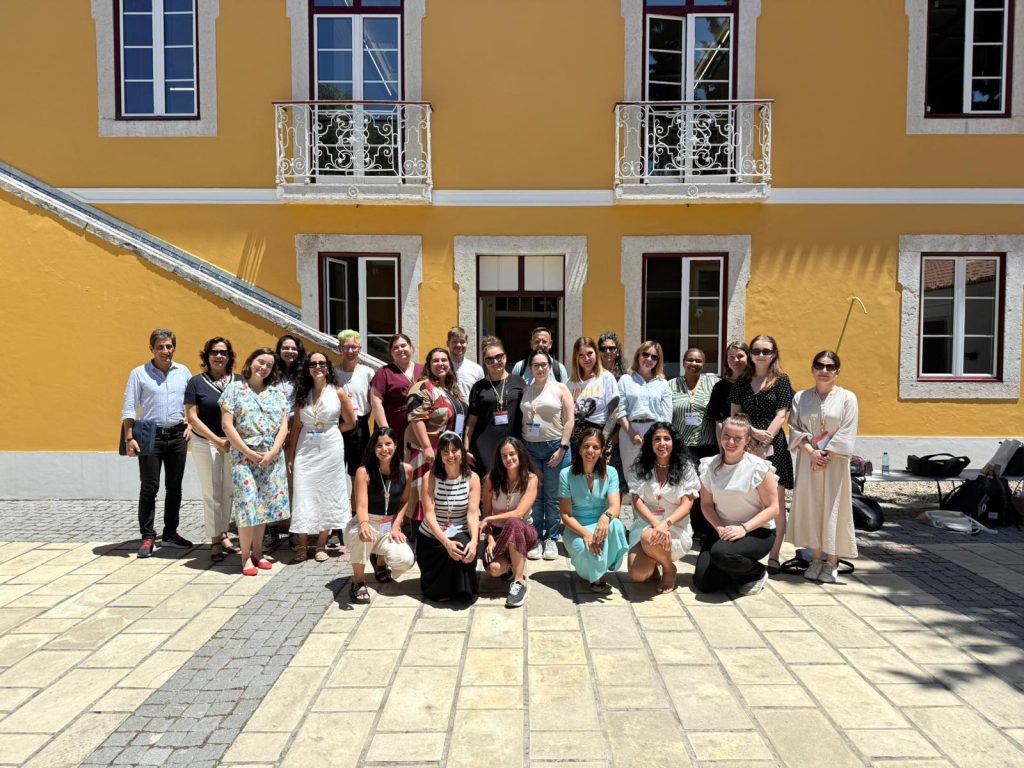
From June 20 to 30, members of Work Package 5 from the ChallengeEU Alliance conducted an innovative pilot training on Openness, Diversity, Equity, and Inclusion. The immersive Blended Intensive Programme (BIP), hosted by Universidade Europeia, brought together participants from all partner universities, offering a unique opportunity to develop and refine their teaching skills on key ODEI topics. After several weeks of in-depth preparation, the training provided a dynamic platform to put their knowledge into practice. The training was structured into six interactive modules, each addressing key aspects of ODEI: A standout feature of the training was the ODEI simulation, where participants engaged in experiential learning by observing actors role-playing real-life scenarios involving discrimination and microaggressions. This powerful exercise sparked deep discussions, allowing attendees to analyze these situations and collaboratively explore solutions. While the opening and closing sessions were held online, the core of the training took place in a hybrid format, combining virtual participation with an in-person gathering in Lisbon, Portugal. This blended approach not only made the program accessible to a wider audience but also provided an invaluable opportunity for participants to network, exchange ideas, and strengthen cross-university partnerships. The training employed diverse, interactive methods – including experiential learning, Mentimeter polls, group discussions, and brainstorming sessions – to ensure active participation. The final evaluations reflected high satisfaction with the content, materials, and facilitation methods, demonstrating the program’s effectiveness in deepening ODEI competencies. Building on this successful pilot, the next phase will involve rolling out the training to students and staff across all ChallengeEU universities. This expansion will further embed ODEI principles into institutional cultures, empowering more individuals to champion inclusivity and equity in their communities. This initiative marks a significant step forward in creating more inclusive, aware, and collaborative academic environments – a testament to the power of shared learning and collective action.
For Better Communication: Internal Training at SEEU
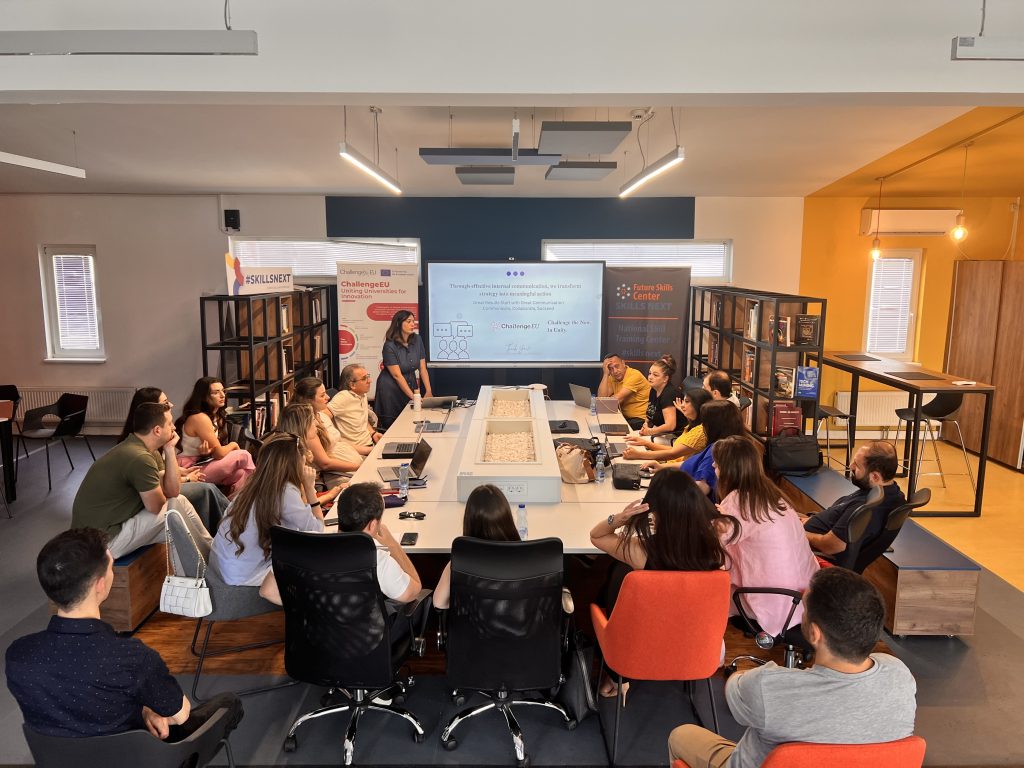
Effective internal communication is key to the success of any international alliance — and the ChallengeEU Alliance is no exception. With this in mind, the Work Package 6 (WP6) team, which leads communication and dissemination efforts across the Alliance, organized a dedicated internal training session at South East European University (SEEU) on 2 July. The training, titled “Internal Communication Tools and Effective Collaboration”, aimed to strengthen coordination among different teams involved in the ChallengeEU project at SEEU and to establish a more unified and effective communication culture across all university departments engaged in the initiative. The session was led by Edlira Palloshi Disha, communication specialist and researcher at the Max van der Stoel Institute (MVDSI), who introduced key tools, techniques, and principles for impactful communication within a complex, multi-stakeholder environment. Drawing from practical experience, Nerodia Selimi from SEEU’s Public Relations Office shared valuable best practices and examples from the university’s communication strategy. The training brought together a diverse group of participants representing all SEEU work packages involved in ChallengeEU, including colleagues from Participants included representatives from the International Relations Office, Career Center, the Pro-Rector for Digitalization, Business Innovation Center, MVDSI’s Project Coordination Unit, deans, and other academic staff and administrative offices across the university. This broad participation created a dynamic environment for knowledge-sharing and collective reflection. One of the session’s main objectives was to initiate a more standardized internal communication framework across SEEU’s project teams, ensuring smoother collaboration, clearer messaging, and improved responsiveness. Participants actively engaged in discussions on: The training session laid the groundwork for more efficient collaboration within SEEU and, by extension, within the broader ChallengeEU Alliance. By aligning internal communication practices, the university is taking a critical step toward ensuring that the Alliance functions as a truly integrated and collaborative ecosystem. This event highlights how internal capacity building can directly contribute to the success of international cooperation — reinforcing ChallengeEU’s core mission to bring European universities together to tackle shared challenges through joint innovation, research, and education
Student Voices Shaping the ChallengeEU Talent Academy
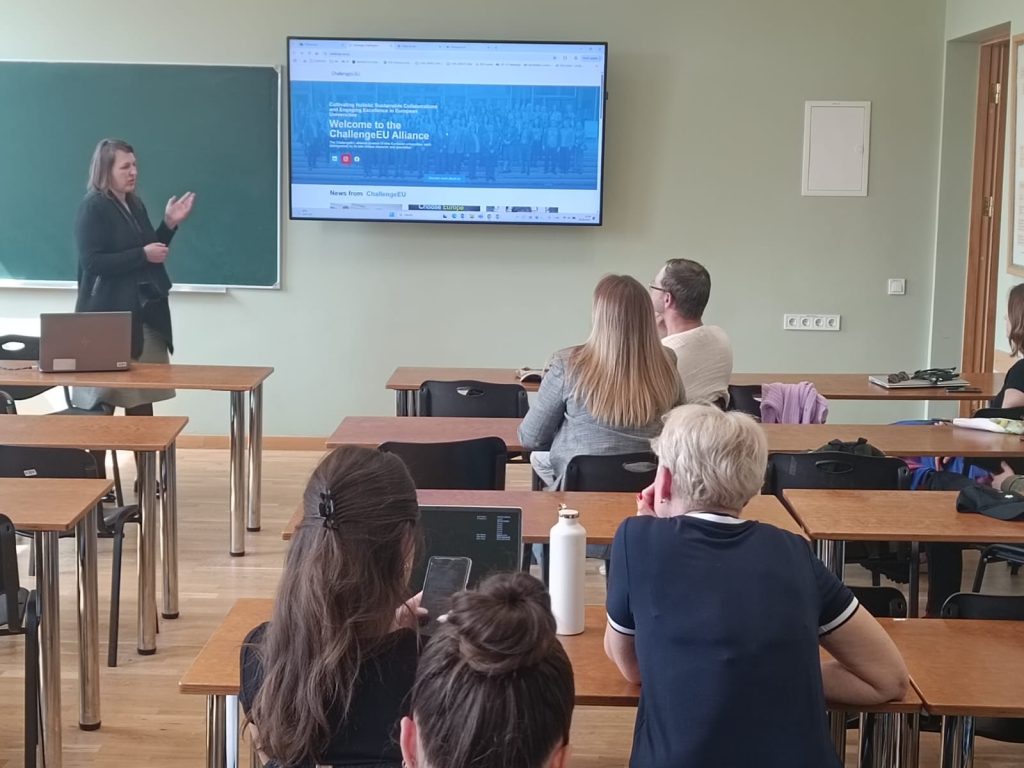
In June, the Latvia University of Life Sciences and Technologies (LBTU) became a hub of dialogue and collaboration as staff and students came together for two dynamic focus group discussions organised within the framework of the ChallengeEU project. These meetings marked a key step in ensuring that the voices of students are at the heart of shaping future educational initiatives across the Alliance. The focus groups brought together doctoral and master’s students from a variety of disciplines, creating a safe and open space for them to share their experiences, challenges, and ideas for improvement related to their academic journey. The atmosphere was both reflective and constructive, with participants offering thoughtful feedback on many aspects of university life. What did they talk about?Discussions explored a wide range of topics, including: Each perspective shared during the sessions provided valuable insight into the lived experiences of early-career researchers and postgraduate students. Their suggestions and reflections are already proving to be essential in the development of one of ChallengeEU’s key initiatives — the Talent Academy. Why does it matter? The Talent Academy is being designed to support (early-career) researchers in acquiring both methodological capacities and entrepreneurial skills, enabling them to conduct socially relevant research and translate findings into real-world impact. The feedback collected during these sessions will directly inform its structure and priorities, helping to ensure that it reflects the true needs of students and young researchers. This type of participatory engagement is at the core of ChallengeEU’s values: building inclusive, challenge-driven, and impactful education and research ecosystems. By listening closely to students, the Alliance aims to co-create a more supportive and effective learning environment — one that empowers students to grow, thrive, and reach their full potential. These focus groups are just one of many ongoing efforts to build bridges between universities and their communities, and to ensure that the transformation of higher education in Europe is driven by collaboration, inclusion, and dialogue.
ChallengeEU Meets with Partners at FHNW
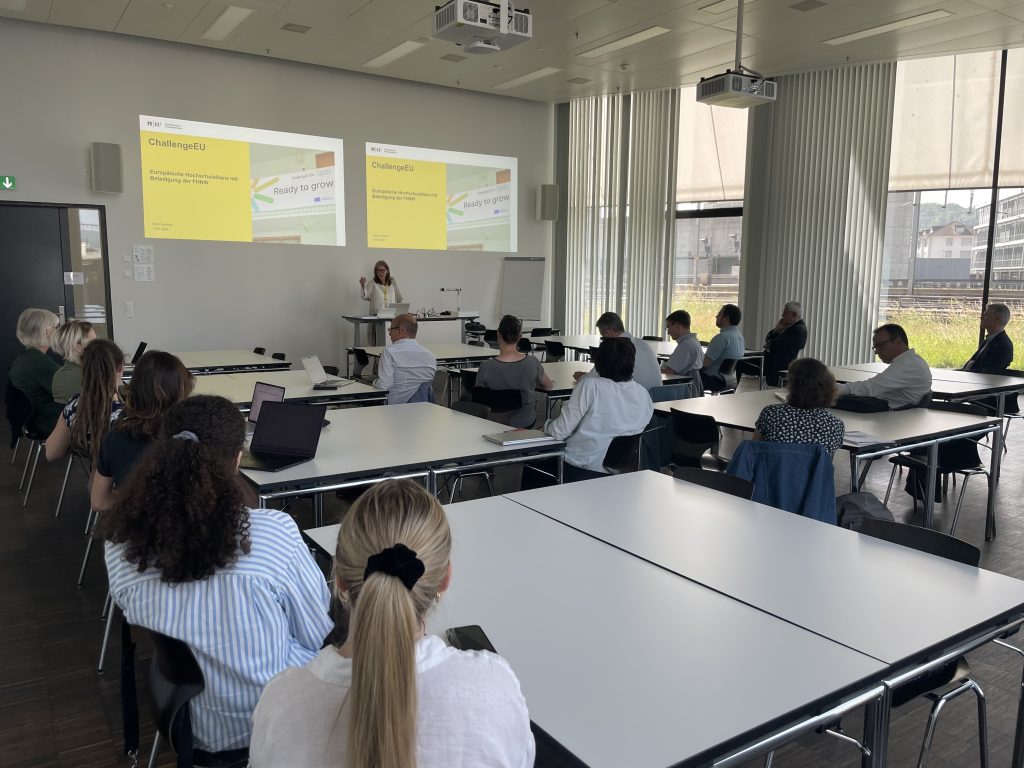
Strengthening regional partnerships is one of the key ways the ChallengeEU Alliance ensures that its work creates tangible impact in local communities across Europe. These partnerships bring the Alliance’s mission closer to reality by connecting higher education institutions with the people, institutions, and industries that shape their surrounding ecosystems. In June, this commitment took a meaningful step forward during a special meeting at Fachhochschule Nordwestschweiz (FHNW) in Switzerland. The ChallengeEU team, together with FHNW President Prof. Crispino Bergamaschi, had the pleasure of presenting the Alliance’s current initiatives to a group of associated partners from the Northwestern Switzerland region. The meeting sparked engaging discussions and laid the foundation for exciting future collaborations. Topics ranged from the evolving needs of students and early-career professionals, to major challenges and opportunities in digitalisation, robotics, artificial intelligence, and diversity. A particularly meaningful part of the exchange focused on the topic of neurodiversity and how schools and employers can better support individuals with diverse cognitive profiles. Initial ideas for joint projects and synergies are already emerging, and all participants shared a strong interest in shaping initiatives that are creative, sustainable, and truly future-oriented. This meeting clearly demonstrated the added value of close cooperation between universities and their regional environments — a core principle of the ChallengeEU Alliance. We are excited to continue these conversations and turn them into concrete, impactful action.
ChallengeEU at the European University Alliances Forum in Wrocław
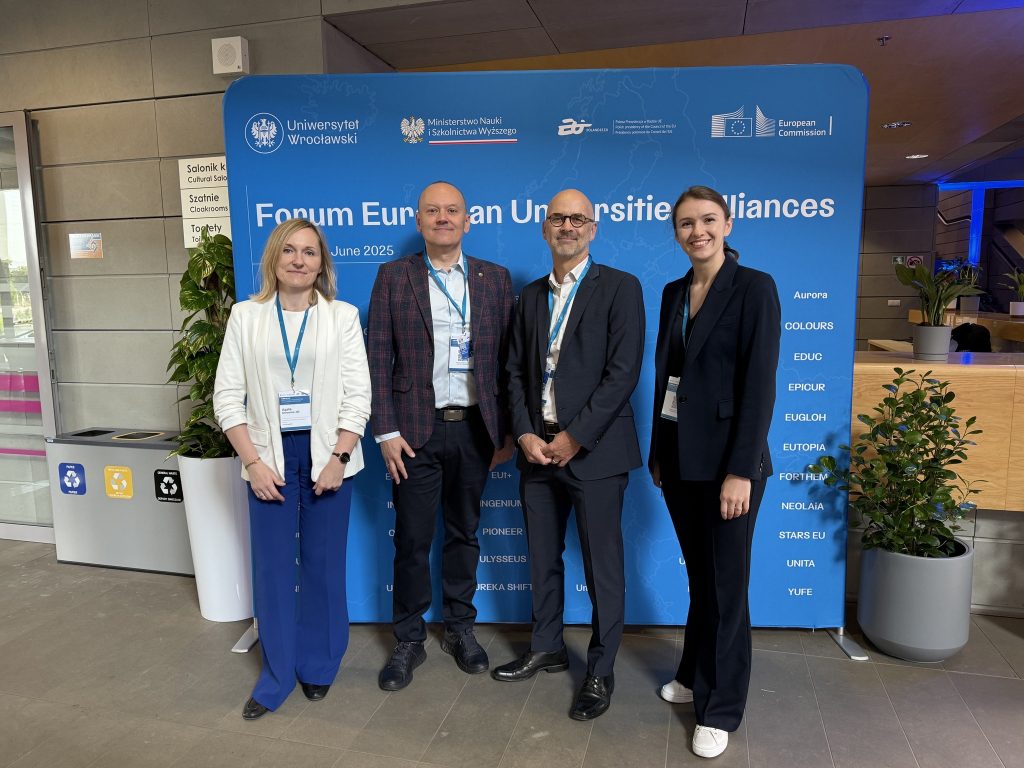
Representatives of the ChallengeEU Alliance are taking part in the 3rd European University Alliances Forum, held in Wrocław, Poland. The event is organized under the Polish Presidency of the Council of the European Union and serves as an important platform for exchange, dialogue, and knowledge sharing among university alliances and key stakeholders. Our delegation (Prof. Dr. Tobias Hagen, HSO’s Vice-Rector for Internationalization and Managing Director of ChallengeEU, Prof. Dr. Paweł Wielgosz, Vice-Deputy Director of ChallengeEU and Rector’s UWM representative for EUI, Sofiia Hecker, Secretary General and Agata Głowacka-Gil, Project Office Coordinator) will gain valuable insights and inspiration through meetings with representatives from other alliances across Europe. The Forum opened with welcome speeches by: Already during the first panel, it was emphasized that European University Alliances are at the very top of the European political agenda Key topics of the Forum included: Participation in the Forum marks another important step in strengthening ChallengeEU’s position within the European academic landscape – and a new opportunity to shape the future of higher education in Europe. >>> 3rd European University Alliances Forum: Summary
International Experience in Sustainable Gastronomy
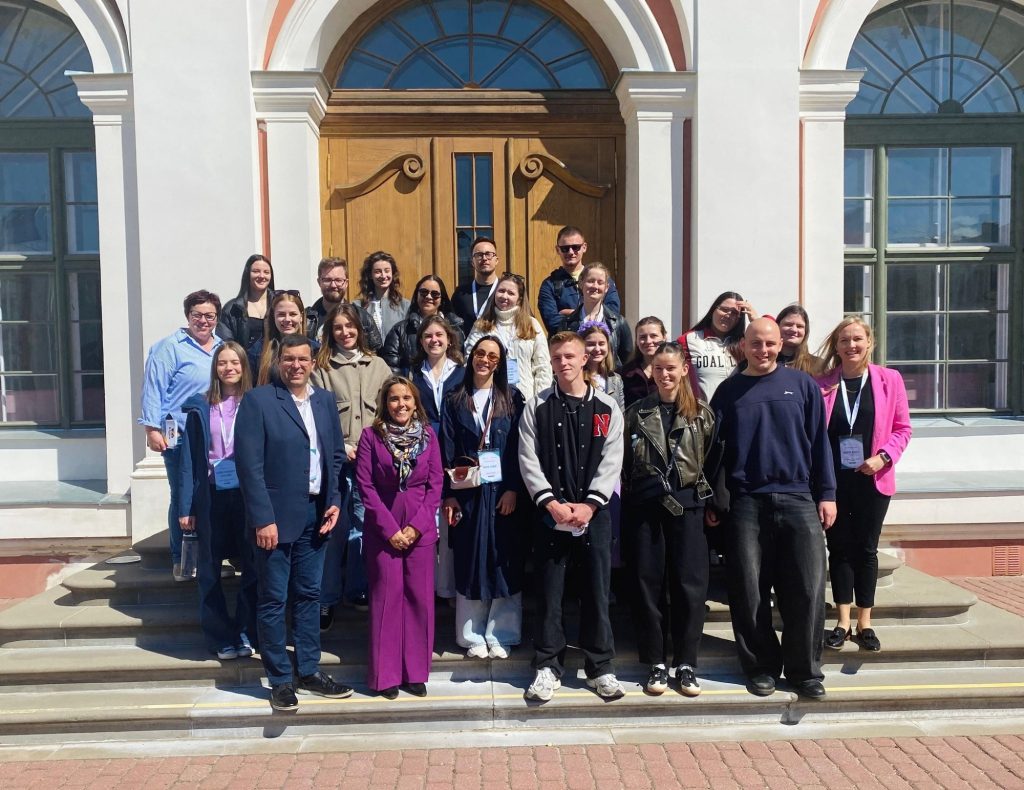
From May 13–17, the Latvia University of Life Sciences and Technologies (LBTU) hosted the Erasmus+ Blended Intensive Programme (BIP) course “Sustainable Restaurant Service”, bringing together students and academic staff from Latvia, Croatia, Portugal, Poland, and Bulgaria. This international course was a valuable opportunity to exchange knowledge and best practices in the field of sustainable gastronomy. The event was made even more impactful thanks to the active involvement of ChallengeEU alliance partners – Universidade Europeia and the University of Warmia and Mazury in Olsztyn, whose participation reinforced the spirit of international collaboration and innovation. The course was especially valuable thanks to the participation of the ChallengeEU partners – Universidade Europeia (Portugal) and Uniwersytet Warmińsko-Mazurski w Olsztynie (Poland) – strengthening international cooperation in sustainable gastronomy. Before arriving in Latvia, participants joined virtual sessions to explore sustainability in restaurant operations, AI solutions, and cross-border teamwork. During the on-site week, students explored:Sustainable restaurant managementGastronomic tourism & local cuisineStudy visits to producers & Michelin Guide restaurantsInspiring talks with chefs & hospitality professionals The course concluded with a practical workshop and a festive lunch showcasing sustainable food service. All participants received certificates — and a shared commitment to future collaboration in sustainable gastronomy. The organizers extend their congratulations to all partners, students, and lecturers who contributed to the success of this event.
Together for the European Cross-Border Region on the Upper Rhine
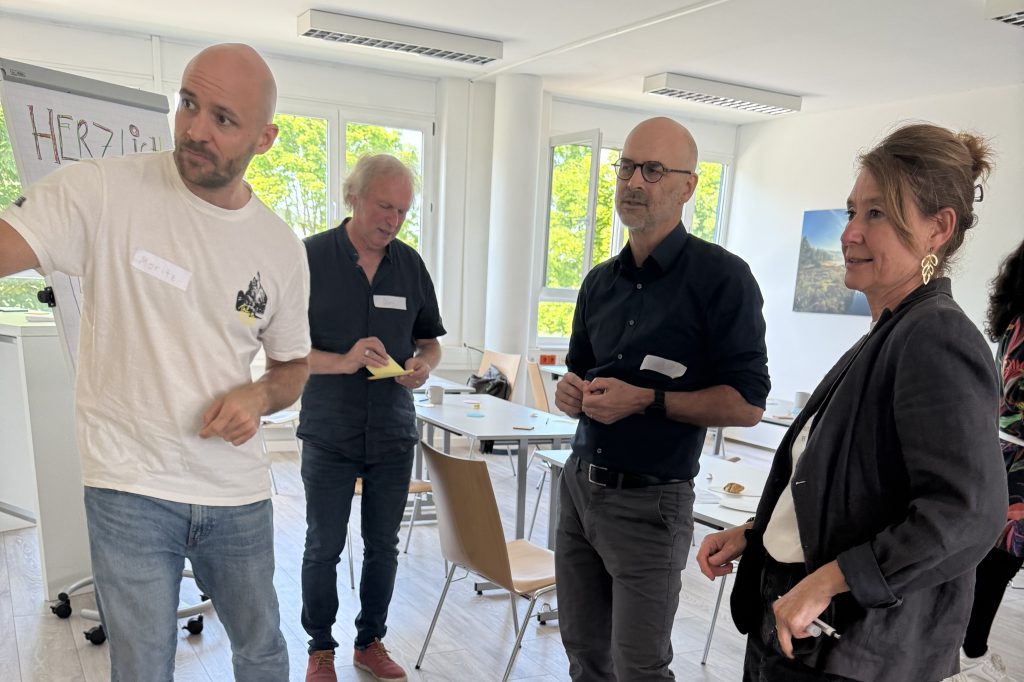
Thanks to the ChallengeEU project, Hochschule Offenburg (Offenburg University of Applied Sciences) played a leading role in bringing together representatives from business, academia, civil society, and different generations from across the Upper Rhine region. In an open and appreciative atmosphere, participants took the time to jointly identify key issues – particularly in the context of reimagining tourism. The aim of the activities undertaken by the members of the ChallengeEU alliance is to closely link research and innovation with regional stakeholders and, as a first step in a creative process, to collaboratively identify regional challenges. These identified challenges are then categorized into key thematic areas: Health & Wellbeing, Smart Digitalisation, and Sustainable Development. The ideas and solutions developed are subsequently integrated into further research and innovation activities to create sustainable and practical outcomes for the region. Students benefit especially from this European network: they have the opportunity to connect internationally and collaborate on innovative solutions. In addition to exciting projects and win-win situations for both regional businesses and students, valuable partnerships and friendships are also formed across national borders. Together, we are committed to a strong, innovative Europe and a sustainable future for the Upper Rhine region. The first workshop in the ChallengeEU Meetup Mission series was made possible thanks to the collaboration with Black Forest Innovation, an associate partner of the alliance, who hosted the participants at their premises.
Choose Europe for Science!
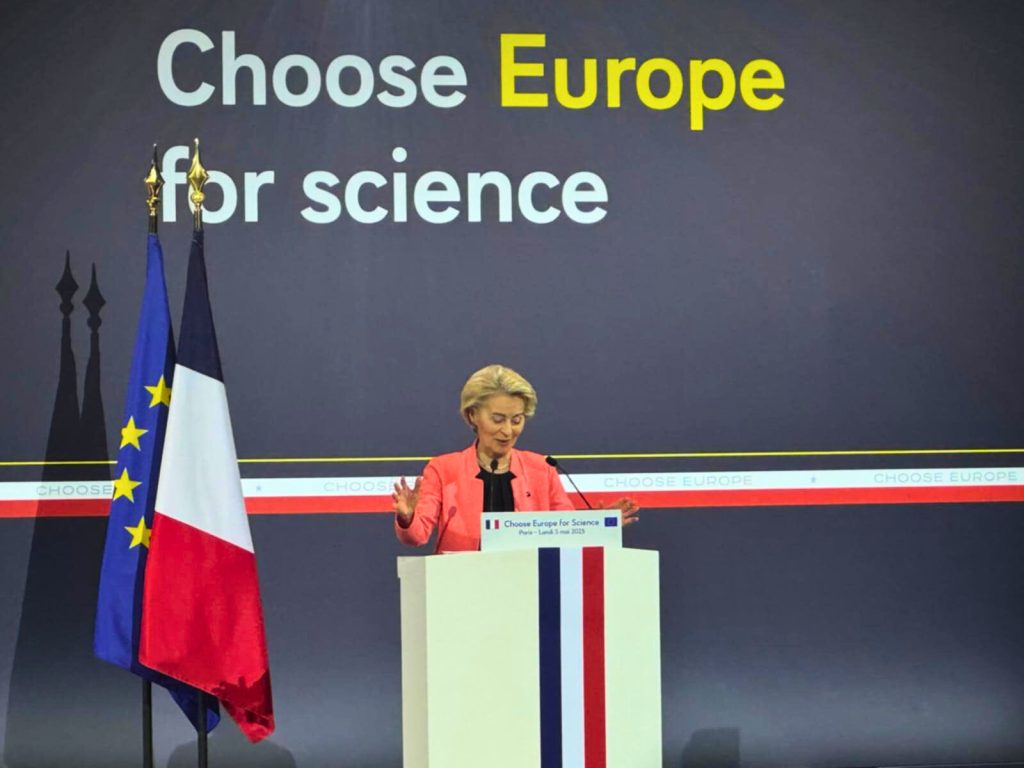
Representatives of the ChallengeEU Alliance, led by Prof. Jerzy Przyborowski, Rector of University of Warmia and Mazury in Olsztyn, and Prof. Irina Arhipova, Rector of Latvia University of Life Sciences and Technologies, took part in the “Choose Europe for Science” forum held in Paris. At the historic Sorbonne University, European Commission President Ursula von der Leyen announced that the European Union will launch a €500 million package for the years 2025–2027 aimed at “making Europe a magnet for researchers“. The funding will be directed to the European Research Council (ERC). European Commission plans to introduce legislation that will guarantee academic freedom as a fundamental right and simplify visa and residence procedures for science professionals. President von der Leyen further pledged increased support for early-career researchers, who will be able to benefit from additional funding through the pilot phase of the Choose Europe initiative under the Marie Skłodowska-Curie Actions. “We want Europe to continue to be at the forefront of fundamental research. We want Europe to be a leader in priority technologies from AI to quantum, from space, semiconductors and microelectronics to digital health, genomics and biotechnology. We want scientists, researchers, academics and highly skilled workers to choose Europe. And this is why today I am presenting the first elements of our Choose Europe Initiative” – said Ursula von der Leyen and she emphasized that “science has no passport, no gender, no ethnic origin, and no political affiliation“. French President Emmanuel Macron also announced that France will provide an additional €100 million from the France 2030 programme to attract researchers and make Europe a “safe haven” for science. “The message is simple. If you like freedom, come and help us to remain free, to do research here, to help us become better, to invest in our future” – said president Macron and added: “There can be no lasting democracy without free and open science“. Let us recall that a month ago, Ekaterina Zaharieva, the EU Commissioner for Startups, Research and Innovation spoke on a similar topic. She said then: “I believe that Europe can and should be the best place to do science and research in the world. A place that attracts and retains researchers, both international and European. In particular, those who are in search of a safe and supportive research environment. To ensure that Europe can be that place, we must enhance our pull factor. We must offer the best opportunities for scientists and researchers“. The Paris conference brought together European Commissioners, scientists, researchers, and ministers responsible for research from EU member states, as well as representatives from non-EU countries (Norway, the United Kingdom, and Switzerland).
LBTU hosts programme “Media Literacy for Future Leaders”
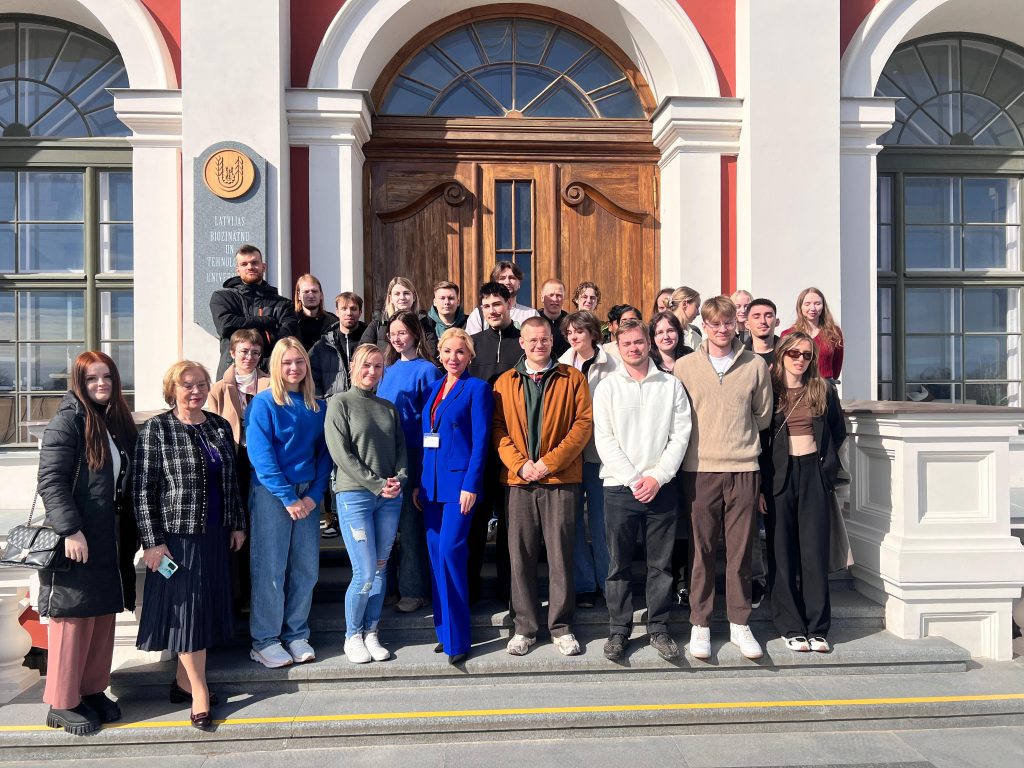
The Institute of Social and Humanitarian Sciences of the Faculty of Economics and Social Development (ESAF) at the Latvia University of Life Sciences and Technologies (LBTU) has successfully completed the Erasmus+ Blended Intensive Programme (BIP) project “Media Literacy for Future Leaders”. Among the participants were students and lecturers from ChallengeEU partner universities — Hochschule Offenburg, University of Warmia and Mazury in Olsztyn, and South East European University (SEEU) — joined by representatives of the Estonian University of Life Sciences. The program was led by an international team of lecturers, including five LBTU faculty members from ESAF and guest lecturers – professor Edlira Palloshi Disha from North Macedonia, media science professor Urszula Doliwa, and associate professor Magdalena Szydłowska from Poland. The programme focused on media literacy, critical thinking, and intercultural communication — equipping students with tools to analyze digital content, detect disinformation, and craft meaningful messages. Following an initial online seminar, participants gathered for a vibrant study week in Jelgava, featuring hands-on workshops, cultural visits to Riga and Rundāle Palace, and student presentations during the international conference “Students on Their Way to Science”. It was a great experience, as reflected in the words of one of the participants: “I would like to sincerely thank you for the wonderful experience during the Blended Intensive Programme in Latvia. It was an incredibly enriching opportunity, both academically and personally. I am truly grateful for the chance to participate, to meet inspiring peers, and to learn from outstanding professors. The organization and hospitality throughout the programme were exceptional. I truly appreciate all the efforts that made this an unforgettable experience”. >>> More information
ChallengeEU: The Beginning of a New Chapter!
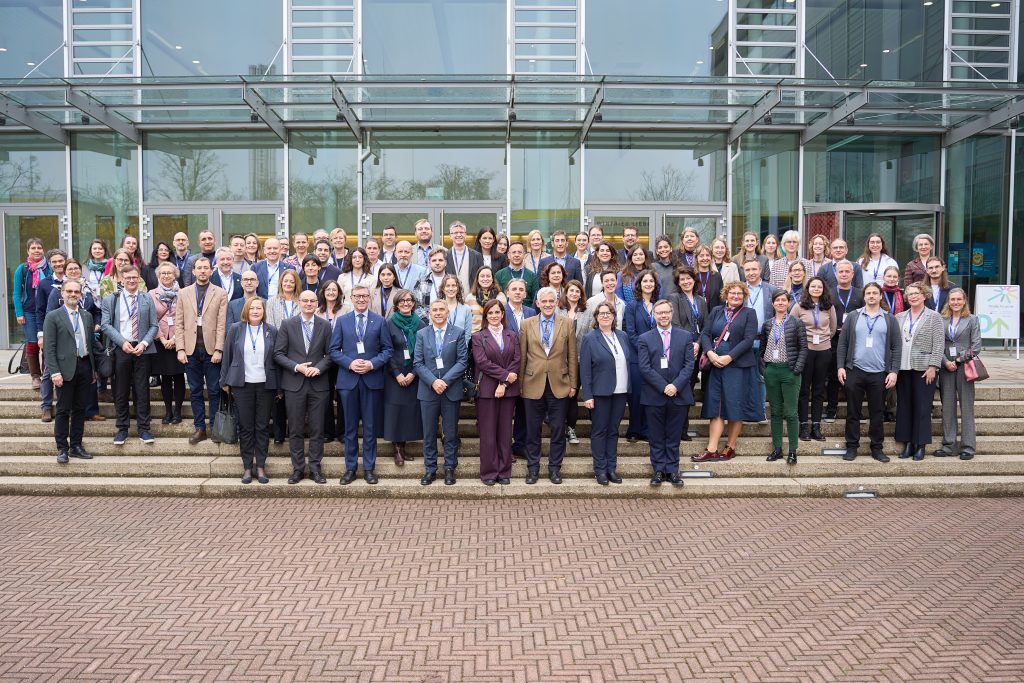
Nine European universities united in Offenburg on 12 March to sign the Consortium Agreement, officially launching the ChallengeEU Alliance. The alliance’s goals include increasing mobility for students, academic staff, and the scientific community, as well as enhancing the quality, integration, and competitiveness of European higher education The joint journey of nine European universities has been ongoing, but the meeting at Hochschule Offenburg (12-13 March) marks the official start of ChallengeEU. The alliance is part of the prestigious European Universities initiative, a European Commission programme aimed at supporting innovative cooperation between universities in the European Higher Education Area. ChallengeEU: A Partnership for Change The ChallengeEU alliance is formed by: Hochschule Offenburg (Germany, project coordinator), South East European University (North Macedonia), ECAM LaSalle (France), Mid Sweden University (Sweden), Universidade Europeia (Portugal), University of Warmia and Mazury in Olsztyn (Poland), Latvia University of Life Sciences and Technologies (Latvia), Universidad Europea de Valencia (Spain), Fachhochschule Nordwestschweiz FHNW (Switzerland, associated partner). The official representatives of universities signed the agreement launching the alliance. Rector Rosa María Sanchidrián Pardo from Valencia was unable to attend the meeting in Offenburg, but the document bearing her signature was sent by post. University authorities, researchers, administrative staff, and students will actively contribute to the alliance’s work. Together, they will establish a common European campus – an international hub for collaboration, knowledge exchange, and personal development. The alliance is creating solutions to allow academic community members to study and gain skills across multiple universities. Participants will also earn cultural and linguistic competencies, certified by credentials like micro-credential. Mission: Future-Ready Higher Education The launch of cooperation between universities from nine countries is a big step for the 83,000 students and 9,000 staff members of the academic community, as well as for the 25 million citizens living in the ChallengeEU region. The overarching aim of the project is hidden in its name: “Cultivating Holistic SustAinable CoLLaborations: ENGaging Excellence in European Universities”. The most important goals of the alliance are: By connecting universities, students and local stakeholders, the alliance members want to ensure that education responds to the challenges of today and the future and serves changes for the better. This is to be supported by cooperation, research and innovation. It is also worth noting that 80 associated partners are involved in the ChallengeEU project. They represent sectors such as science, business, public administration and civil society. This demonstrates that the alliance’s influence will extend far beyond university campuses. Kick-off Meeting in Offenburg The signing of the Consortium Agreement in Offenburg is accompanied by many meetings of the working and management teams. Representatives from all partner universities have gathered at Hochschule Offenburg, with many additional participants joining online. This event provides an opportunity to discuss the project’s vision and objectives while developing an action plan for the near future. Moreover, it serves as a key moment for integrating the people who will shape ChallengeEU’s success. ChallengeEU is not just an alliance of universities – it is a dynamic space for sharing experiences, fostering international competencies, and building a better future for students and society.



